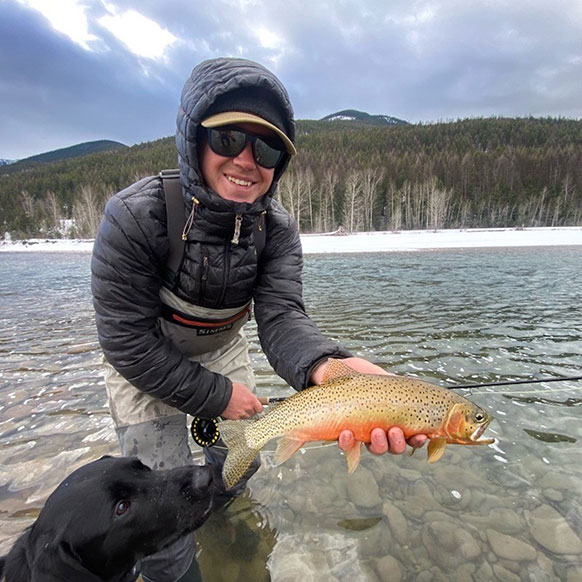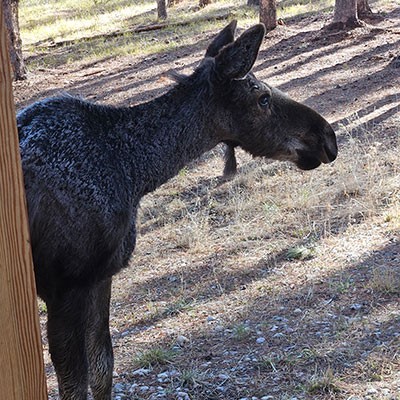Biodiversity Institute Welcome New Associate Director
Dr. Brett Addis was appointed the new Associate Director of the Biodiversity Institute on July 17. Brett, originally from Missoula, Montana, attended the University of Montana for a Masters and Ph.D. in Organismal Biology and Ecology.
"I’ve always been a biologist at heart, and I’ve always been curious about the natural world,” says Brett. “After a broad Ph.D., I made a conscious choice to pursue ecological modeling as a career because it has more management relevance and I’m able to answer more management questions.”
That career choice is what brought her to the University of Wyoming. Brett joined the Rocky Mountain Amphibian Project (RMAP) as a Post Doctoral Research Associate and worked with UW’s Dr. Melanie Murphy. RMAP, a Biodiversity Institute community science project, encourages the public to engage in amphibian data collecting throughout the summers. Brett joined the team in 2021 and focused on data analysis and project management.
Brett has also worked as a Post Doctoral Research Associate at the University of Georgia at the Warnell School of Forestry and Natural Resources, as well as a project coordinator at the University of Montana where she studied western spadefoot toads and developed environmental DNA as a monitoring tool.
Brett joined the Biodiversity Institute as Associate Director (BI) in July 2023 after the retirement of former Associate Director, Dr. Dorothy Tuthill.
“Brett brings an incredible skillset to the BI, and I’m so excited to see how our research, education, and outreach programs improve, grow and enhance biodiversity conservation with her guidance,” says Brent Ewers, Director of the BI.
“The BI is such a powerhouse for science outreach and communication, and it has all the right pieces to extend its reach to help with data questions and management questions because of all the great programs. We can leverage that further and continue on the trajectory that has already been laid out by everyone before me,” says Brett.
Alongside working as BI Associate Director, Brett will also start as an Assistant Lecturer in 2024. She hopes to develop new courses related to conservation biology.
Share This Post
Social Media
Latest News



Archives
- All
- October 2025
- August 2025
- July 2025
- June 2025
- May 2025
- April 2025
- March 2025
- February 2025
- January 2025
- November 2024
- October 2024
- September 2024
- August 2024
- July 2024
- June 2024
- May 2024
- April 2024
- March 2024
- February 2024
- January 2024
- December 2023
- November 2023
- August 2023
- July 2023
- April 2023
- September 2022
- August 2022
- July 2022
- June 2022
- May 2022
- April 2022
- March 2022
- February 2022
- January 2022
- December 2021
- November 2021
- October 2021
- September 2021
- August 2021
- May 2021
- April 2021
- March 2021
- October 2020
- August 2020
- July 2020
- January 2020
- March 2019

